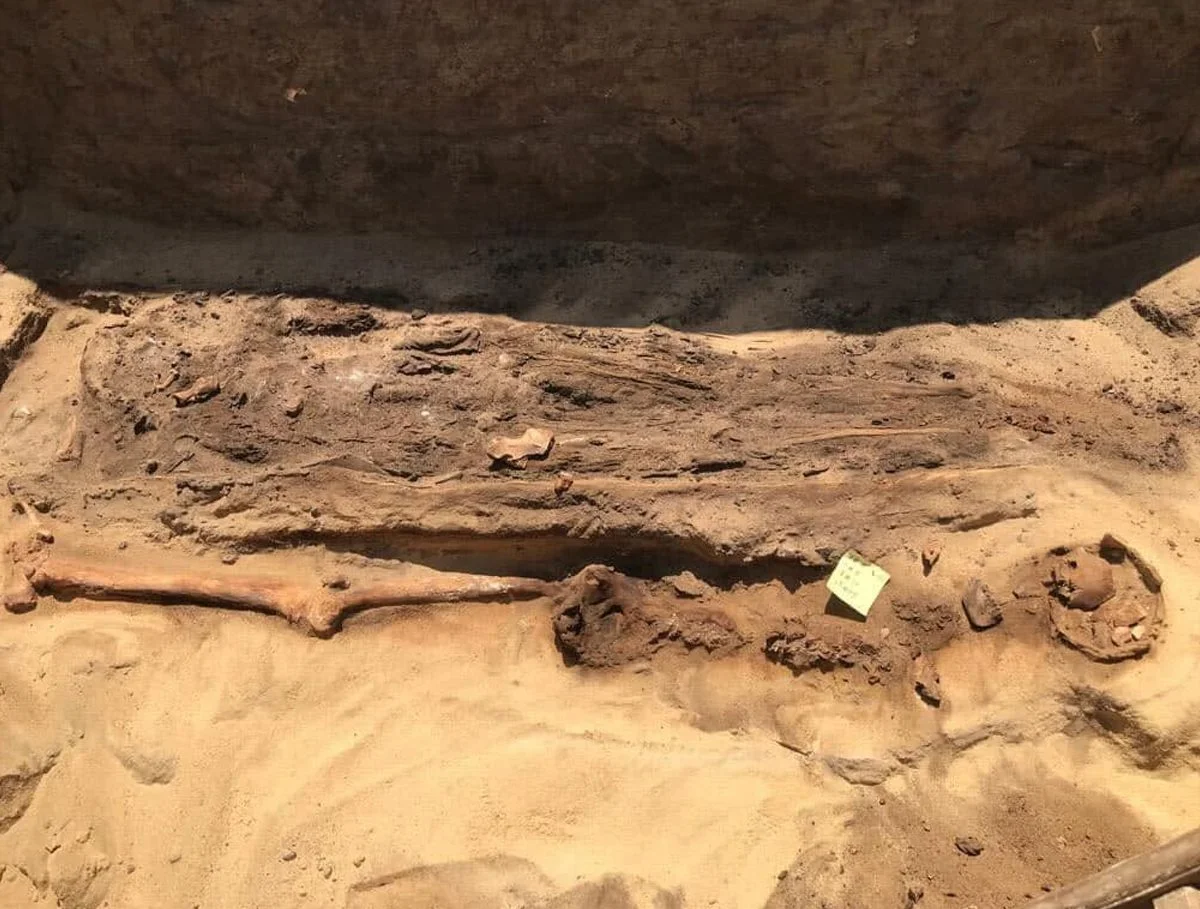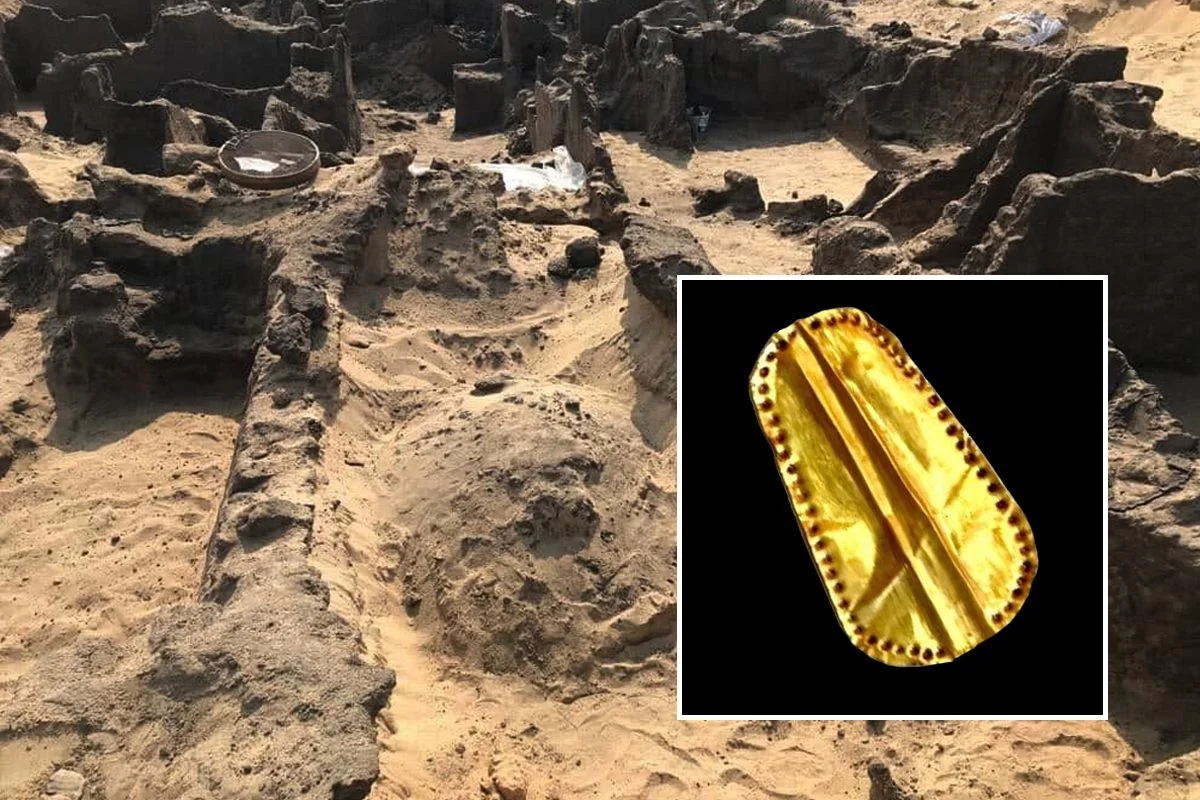Archaeologists from the Ministry of Tourism and Antiquities have uncovered golden tongued Mummies during excavations in the Menoufia Governorate, Egypt.
The discovery was made during an extension of the research area at the Quweisna necropolis, a burial site that contains hundreds of tombs from different periods in Egypt’s history.
Excavations revealed a number of mummies, some of which have a golden tongue or amulet placed in the deceased’s mouth. Such a practice was intended to ensure that the dead would be able to communicate in the afterlife and speak before the court of the Ancient Egyptian god, Osiris.
Archaeologists have found similar burial practices across Egypt, such as the Feb 2021 discovery at the Taposiris Magna temple in Alexandria, or in Dec 2021 at the archaeological site of Oxyrhynchus, near the modern-day town of El Bahnasa.

According to Mustafa Waziri, secretary-general of the Supreme Council of Antiquities, the mummies are in a poor state of preservation, however, the researchers found that several were covered with thin sheets of gold and placed in wooden coffins. The team also found clay pots, golden artefacts in the shape of scarabs and flowers, as well as a number of funerary stone amulets and vessels.
Ayman Ashmawi, head of the ancient Egyptian Antiquities Sector, said: “the newly discovered part of the necropolis has a different architectural style. Early studies on the burials, the mummies, and the funerary collection, indicates that this necropolis was used during three different periods: the late ancient Egyptian, the Ptolemaic, and part of the Roman period”.
Previous excavations at Quweisna have revealed hundreds of tombs, stone coffins, and a huge coffin made from black granitite for an important priest.
Ministry of Tourism and Antiquities





